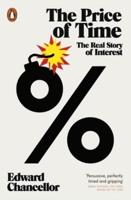Publisher's Synopsis
Banking on Growth Models contends that China's rapid economic rise from the late 1970s to today has been built on and shaped by a highly politicized and inefficient bank-centric financial system. Stephen Bell and Hui Feng argue that if the Chinese growth model drives how key economic sectors interact, no amount of incremental reform can have much impact on the financial system-meaningful reform can stem only from a revised growth model.
For a time after the global financial crisis, it appeared that the expansion of a more market-oriented shadow banking system might help sustain China's economic growth. Since around 2015, however, Xi Jinping's regime has reversed this trajectory and placed China's financial system under heavy state control, resulting in slowed economic development and skyrocketing national debt. China's market transition and economic rebalancing are now in doubt, as is the fate of the nation's economy. By pinpointing finance as a vital element of the growth model, Bell and Feng provide a convincing assessment of financial risks and the prospects for economic rebalancing in China.
Banking on Growth Models demystifies the world of Chinese banking and finance as it investigates an ever-rising national debt, a declining rate of economic growth, and the possibility of dire and drastic reform by the Asian superpower's government.








